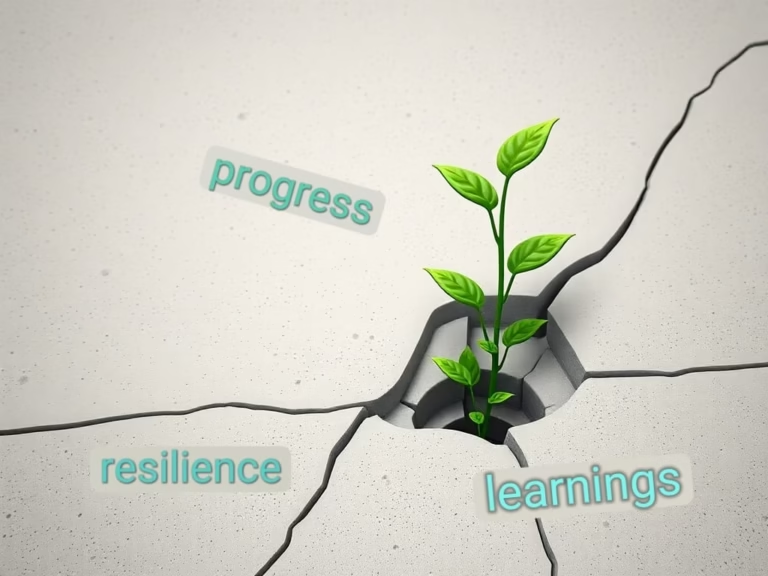5 Effective Strategies to Believe in Yourself and Boost Confidence
Table of Contents

Believing in yourself isn’t just a motivational idea—it’s a life-changing mindset that can determine how you show up in the world. In today’s fast-paced, demanding world, many people silently wrestle with feelings of inadequacy, fear of failure, and self-doubt.
But here’s the truth: confidence isn’t something you’re born with—it’s something you build. The importance of believing in yourself cannot be overstated; it is the foundation for personal development and lasting change.
Every person has untapped power within them—a deep well of potential waiting to be unlocked. Yet for many, self-doubt, fear of failure, and negative self-talk stand in the way. Every journey toward greater self belief begins with a single, powerful step: understanding your own thoughts and feelings.
It’s essential to take the time to truly understand the unique challenges and emotions you face on your journey, as this self-awareness helps validate your experiences and fosters self-acceptance. The truth is, believing in yourself isn’t just about feeling good—it’s about changing your life from the inside out.
One of the key factors behind that belief is self-efficacy—your belief in your ability to succeed at specific tasks. Introduced by psychologist Albert Bandura, self-efficacy determines how motivated you are to take action, how resilient you are in the face of failure, and how persistent you remain in pursuit of your goals.
It’s task-specific and built through experience, mastery, and encouragement. The importance of realising that even if you have failed before, you can still achieve your goals, cannot be underestimated.
In contrast, self-confidence is a broader, more general sense of trust in yourself and your abilities. Self-efficacy fuels self-confidence: when you consistently succeed at tasks, your self-efficacy grows—and as a result, so does your overall confidence.
Research from the American Psychological Association shows that individuals with high self-efficacy are more likely to overcome obstacles, bounce back from failure, and achieve their goals (Bandura, 1997).
When you strengthen your belief in your own capabilities, your confidence skyrockets—and so does your success. It feels empowering to overcome self-doubt and achieve something you once thought impossible.

Let’s explore five powerful strategies that will help you break through fear and doubt, boost your self-worth, and finally believe in the person you were born to be.
1) Building Self-Esteem
What is self-esteem?
Self-esteem refers to the overall sense of a person’s value, worth, or personal judgment of themselves. It influences how you think, feel, and behave in everyday life. When your it’s high, you feel confident, capable, and resilient in the face of challenges.
When it’s low, it often leads to self-doubt, fear of failure, and feelings of unworthiness. Strengthening your self-esteem is a foundational step toward building lasting confidence and embracing your full potential. It is the foundation of your confidence. It’s the lens through which you view yourself—and it can either lift you up or hold you back.
How to Raise Your Self-Esteem
Challenge negative self-talk and replace it with positive reinforcement. When your inner voice says “I can’t,” consciously replace it with “I have the power to learn “ This mental shift rewires your brain into believing in yourself.
Focus on your strengths, not your shortcomings. Keep a daily strengths journal where you write down what went well and what you’re proud of.
Take time each day to reflect on what you are grateful for, or keep a gratitude journal. Focusing on what makes you feel grateful can help shift your mindset to positive aspects of yourself and your life, boosting self-esteem.
Practice self-care and self-compassion—these are not luxuries but lifelines. Treat yourself with the same patience and kindness you’d show a close friend.
Surround yourself with people who see your greatness, especially during moments when you can’t. Find mentors, join online communities, or connect with uplifting friends who remind you of your progress and potential. Spend time with those who reflect the confident version of yourself you are becoming.
“Talk to yourself like you would someone you love.” – Brené Brown

2) Overcoming Self-Doubt
Self-doubt is human nature—but it doesn’t have to control your life. The key is to face it, not fear it. Identifying your specific fears and addressing them directly is essential to overcoming self-doubt. Having doubts is completely normal, and recognising them is an important step toward believing in yourself.
Why do people struggle with self-doubt?
Often, it begins with experiences from early life—moments where our efforts were criticised, ignored, or dismissed. These moments plant the seeds of limiting beliefs such as “I’m not good enough,” or “I always mess things up.”
Over time, repeated failures or negative feedback can lead to a psychological condition known as learned helplessness, where a person begins to believe they have no control over their outcomes, even when they do.
This belief system can lock a person into a vicious cycle, impacting their ability to take action, trust their decisions, or pursue new opportunities.
How to Beat self doubt?
To beat it, we must first identify these learned limiting beliefs and change them. On top of that, we can:
Choose positive self talk. According to research from the University of California, people who use positive self-talk before high-stakes tasks perform significantly better than those who don’t (Tod, Hardy, & Oliver, 2011).
Focus on progress over perfection. Every step forward counts, even the imperfect ones. Replace the need to “get it right” with the drive to “keep going.” This shift is especially important for overcoming self-doubt in high-pressure areas like public speaking or launching a new business idea.
Reframe failure as a stepping stone—not a dead end. View setbacks as part of the process. Ask, “What did I learn? What can I do better?” Remember: failure is feedback, not a final verdict.
Engage a confidence coach or life coach to help you break through limiting beliefs. A skilled coach provides objective insights, guidance, and accountability. They can help you reframe negative thought patterns, strengthen your self-efficacy, and stay focused on your progress. Coaching accelerates your growth by giving you tools, strategies, and a supportive voice to counter the inner critic.
Coaching Story – David’s Turning Point:
David was a talented designer with a dream to launch his own agency. But every time he started, fear crept in: “What if I fail?” Through personal development coaching, David embraced a growth mindset, learned to reframe failure as feedback, and sought out mentors who believed in him. Today, he runs a thriving business—and helps other creatives break free from self-doubt.

3) Raising Self-Worth
What is Self-worth
Self-worth is about believing that you are inherently valuable—not because of what you do, but because of who you are. It is closely related to self-esteem, which reflects how you evaluate your own abilities and traits.
While self-esteem is shaped by your achievements, skills, and external validation, self-worth is the unshakable inner belief that you matter—regardless of success or failure. The importance of recognizing your value even when you have failed cannot be overstated, as it allows for self-forgiveness and personal growth.
Self-esteem is more about how you evaluate your abilities and qualities, and can fluctuate based on external factors. Essentially, self-worth is about feeling good enough regardless of achievements, whereas self-esteem can be tied to accomplishments and external validation.
Think of it this way: self-esteem is like the reflection you see in a mirror—it can change depending on the lighting, angle, or mood of the moment. Self-worth, however, is like the actual person standing in front of the mirror—unchanging in essence and deserving of love and respect, regardless of what the reflection shows.
While self-esteem reacts to how the world sees you, self-worth anchors you in how you see yourself at your core. Self-esteem can fluctuate with success or failure, while self-worth remains steady, affirming that you are enough, regardless of circumstances.
For example, someone might have high self-esteem because they just got a promotion or received praise from others. But if that validation were removed, would they still feel worthy? If the answer is no, it means self-worth needs strengthening.
True self belief comes when both are aligned—when you can celebrate achievements and recognize the importance of learning from times when you have failed. Celebrating both wins and lessons from failure builds confidence and encourages continuous growth, reinforcing that your value as a person never depends on external outcomes.
A strong sense of self-worth reinforces high self-esteem, and together, they form the backbone of true self belief, emotional resilience, and inner peace.
Coaching Story – Amelia’s Discovery:
Amelia struggled with people-pleasing, constantly seeking approval from others. During coaching, we explored her core beliefs and discovered a hidden narrative: “I have to earn love by being perfect“. Through inner work, she raised her self awareness and began to reclaim her voice. She set boundaries. She said no. Her sense of self-worth soared—and so did her inner peace.
How to Raise Your Self-Worth
Identify and rewrite the limiting beliefs from your past. Start by asking yourself, “Where did I first learn that I wasn’t enough?“ Whether from childhood, school, or relationships, understanding these internalised self beliefs allows you to challenge and replace them with new empowering truths.
Remind yourself: Your worth is not up for negotiation. You are not defined by your achievements, failures, or other people’s opinions.
Celebrate small wins—your journey matters. Acknowledge your efforts, whether it’s speaking up in a meeting, learning a new skill, or simply getting out of bed on tough days. These small victories compound to believing in yourself.
Anchor yourself in love, not comparison or negativity. Social media and society may push us to measure ourselves against others. Instead, focus inward. Reflect on your personal growth, your unique strengths, and the love you offer to the world. Surround yourself with those who lift you up—not those who make you question your worth.
“You are worthy simply because you exist.”

4) Developing a Growth Mindset
A growth mindset is the belief that your abilities can be developed through effort and learning. It turns failures into fuel and setbacks into stepping stones. When you adopt a it, you begin to see challenges as opportunities to grow instead of threats.
It’s about rewiring your brain to expect progress and to build lasting confidence and strong self belief, even in the face of setbacks. The happiness that comes from realising you have achieved something through persistent effort can be a powerful motivator for continued development.
Believing that you can improve with practice reinforces your self-efficacy—the belief in your ability to influence outcomes. This belief is essential for developing self-confidence. Instead of being paralysed by fear of failure or consumed by self-doubt, you begin to take consistent action.
You no longer see mistakes as proof that you’re not good enough, but rather as feedback for improvement. Each time you remove an obstacle or learn a new skill, you accumulate evidence that you are capable, reinforcing your self belief.
Adopting a growth mindset leads to living a more fulfilling and meaningful life, as you experience personal development and greater satisfaction. Research by Carol Dweck (Stanford University) found that people with a growth mindset are more resilient, more innovative, and more likely to achieve success over time (Dweck, 2006).
How to Build a Growth Mindset
Embrace challenges—they grow you. Every challenge is an invitation to evolve. Whether it’s learning a new skill, managing a difficult conversation, or taking on a new role in your career, growth only happens when you’re stretched beyond your comfort zone.
View feedback as a gift, not a judgment. Instead of taking feedback personally, treat it as insight for growth.
Replace “I can’t“ with “I can learn.” The words you use shape your beliefs. Saying “I can’t” shuts the door to possibility, while “I can learn” invites opportunity, progress, and empowerment. This small linguistic shift builds long-term confidence.
Seek knowledge and master new skills that align with your dreams. Whether it’s public speaking, leadership, technology, or emotional intelligence, investing in your development enhances your belief in your own potential and prepares you for greater success.
Work with a mindset coach or personal development coach. A coach can help you uncover blind spots, reframe limiting beliefs, and implement powerful strategies tailored to your goals. With consistent coaching support, you’ll develop greater clarity, mental resilience, and confidence in your ability to grow through any challenge.
Testimonial – Client Reflection:
“Before working with my mindset coach, I didn’t even realise how much fear and negativity was holding me back. I was lost, I constantly compared myself to others and felt like I had to be perfect to be good enough.
But through our sessions, I learned how to shift my thinking, set realistic goals, and believing in myself. Today, I feel confident taking on challenges and know that I’m capable of evolving through every experience.”
Whether it’s public speaking, leadership, technology, or emotional intelligence, investing in your personal development enhances your belief in your own potential and prepares you for greater success. Working with a mindset coach or personal development coach can accelerate this process.
Whether in business, relationships, or life, your mindset determines your outcome. A growth mindset keeps you moving forward, opens doors, and transforms the way you see failure—not as something to fear, but as a stepping stone to mastery.

5) Creating a Supportive Network
You don’t have to do this alone. In fact, you’re not supposed to.
Surrounding yourself with people who uplift, inspire, and challenge you is one of the most important things you can do to boost self-belief, face your fear, and stay aligned with your highest self.
Human beings are wired for connection—and the right support system can be the very thing that reignites your faith in yourself. Building a supportive network is especially important for children, as early encouragement and positive reinforcement can help them believe in themselves and develop resilience.
Surround yourself with people who offer positive reinforcement and encouragement. Find out mentors, coaches, friends, or communities that celebrate your progress and help you stay focused on your goals.
When setbacks happen, reflect on what you’ve learned and use that knowledge to adjust your approach. Every step forward, regardless of how small, builds your confidence and strengthens your self efficacy.
Remember, achieving self-efficacy isn’t about never feeling fear —it’s about not letting those feelings stop you. By focusing on your potential, believing in your capabilities, and taking consistent action, you’ll find yourself overcoming obstacles, achieving your goals, and turning your dreams into reality.
Ways to Build a Supportive Network
Choose friends who believe in you. Share your goals and pay attention to who celebrates them—those are your people.
Strengthen bonds with family and loved ones who support your personal growth and mental well-being.
Join mastermind groups, coaching communities, or mentorship circles where vulnerability and ambition are embraced.
Cut ties with constant critics—negativity is contagious. Set healthy boundaries and protect your emotional energy.
Reach out to people who inspire you—even online. A message, a coffee, or a collaboration can be the start of something transformative.
“You become the average of the five people you spend the most time with.” – Jim Rohn
Remember: The right people will remind you of who you are when you forget. A supportive network not only elevates your power but accelerates your path to success, and true fulfilment.

Achieving Self Efficacy: Turning Belief into Action
Once you’ve started believing in yourself, the next step is to turn that belief into action by building self efficacy. Self efficacy is all about having the confidence to take on new challenges, develop new skills, and trust in your ability to succeed—even when self doubt tries to creep in.
It’s not just about thinking you can do something; it’s about proving it to yourself through action. Begin by setting small, achievable goals that stretch your abilities just beyond your comfort zone. Each time you accomplish something new, no matter how minor, you reinforce your self belief and build momentum.
For example, if you want to improve your public speaking skills, start by practicing in front of a friend or family member. With each success, your confidence and self efficacy grow stronger.
Surround yourself with friends, family, and mentors who encourage your growth and believe in your potential. Their support can help you stay focused and motivated, especially when you face setbacks or failure.
Remember, failure is not the end—it’s an opportunity to learn, adapt, and move forward with even greater determination. By maintaining a growth mindset, you’ll see every challenge as a chance to develop your skills and abilities.
Focus on progress, not perfection. Celebrate your successes, learn from your failures, and keep moving forward. The more you practice, the more you’ll realise that you are capable of achieving your goals. Over time, your self efficacy will become a powerful force, helping you overcome doubt and achieve lasting success in every area of your life.
By taking consistent action, believing in your abilities, and embracing a mindset of growth, you’ll transform self belief into real-world achievements—and discover just how much you’re truly capable of.

Maintaining Momentum: Staying Confident for the Long Haul
Building self confidence is just the beginning—maintaining it over time is what leads to lasting personal growth and success. Staying confident for the long haul means developing a mindset that values progress over perfection and embraces new ideas and experiences as opportunities for growth.
By focusing on learning and improvement, rather than fearing mistakes or setbacks, you keep your confidence strong even when life throws challenges your way. Remember, success isn’t about never failing—it’s about continuing to move forward, learning from each experience, and using that knowledge to fuel your future achievements.
To keep your momentum going, prioritise your well being. Take time to rest and recharge, knowing that self-care is essential for sustained growth. Celebrate every success, no matter how small, and use these wins as reminders of your capabilities and progress.
Surround yourself with supportive, positive people who encourage your dreams and help you stay focused. Their belief in you can be a powerful source of motivation when your own confidence wavers.
Most importantly, keep your eyes on your dreams. Embrace the journey, knowing that every step forward matters. By focusing on your strengths, seeking out growth opportunities, and staying committed to your personal development, you’ll maintain the momentum needed to achieve your goals and live a confident, fulfilling life.

Self-Concepts at a Glance: Key Terms Compared
Concept | Definition | Example |
|---|---|---|
Self-Efficacy | Belief in your ability to succeed at specific tasks or situations. | “I believe I can deliver this presentation successfully because I’ve practiced and prepared.” |
A general sense of trust in your overall abilities and judgments. | “I trust myself to handle whatever challenge comes my way.” | |
Self-Esteem | How you evaluate your own worth based on your abilities, traits, and perceived value. | “I feel proud of the person I’ve become because I’ve overcome challenges and learned to value my unique strengths.” |
Self-Worth | Deep, unconditional belief in your inherent value as a person—regardless of achievements. | “Even if I fail or others don’t approve, I know I am still enough and worthy of love and respect.” |
Final Thoughts: Start Believing Now
The world doesn’t need you to be perfect. It needs you to be real, to be brave, and to keep moving forward even when it’s hard. The ability to believe in yourself—despite fear, failure, or doubt—is what separates those who dream from those who live their dreams.
You are not lost. You are not broken. You are becoming.
Now is the time to write a new story. A story where you stop being afraid… and start believing.
Ready to Transform Your Confidence?
Book a complimentary 90-minute discovery call with Coach Rainy Rainmaker today.
If you’re a high-achieving professional who looks successful on the outside but secretly struggles with self doubts, fear of failure, or perfectionism — you’re not alone. And you don’t have to figure it out by yourself.
Let’s transform your confidence — together.
Schedule your 90-minute complimentary discovery coaching and take the first step toward a more empowered, emotionally grounded, and confident version of yourself. This isn’t just a conversation. It’s a turning point.
👉 Click here to book your session now
What’s Next?
Find out if your confidence level is undermining your success here.
Wondering if you are ready for coaching? Take this coaching readiness questionnaire
Explore our video gallery for insights and inspiration.
For more insights on personal growth and coaching, explore our blog articles.


